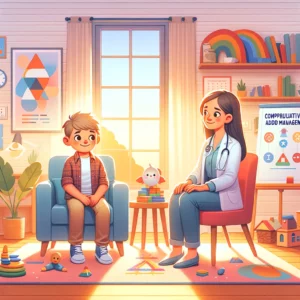Interpersonal relationships are an essential part of human life. They bring joy, love, and support, but they can also be a source of stress, conflict, and pain. When a relationship is strained or broken, it can be challenging to repair. This is where interpersonal effectiveness skills from dialectical behaviour therapy (DBT) can be helpful. Let’s explore how DBT skills can help restore relationships and promote healthy communication.
DBT is a form of therapy developed by psychologist Marsha Linehan to treat individuals with a borderline personality disorder. However, its skills can be beneficial for anyone looking to improve their communication and relationships. The four modules of DBT are mindfulness, distress tolerance, emotion regulation, and interpersonal effectiveness. Interpersonal effectiveness focuses on improving communication, assertiveness, and boundary-setting skills.
The first step to restoring a relationship is to identify and understand the problem. DBT’s interpersonal effectiveness skills can help individuals communicate their needs, wants, and boundaries in a clear and respectful way. When individuals lack effective communication skills, misunderstandings can occur, leading to arguments and hurt feelings. DBT’s interpersonal effectiveness skills can help prevent miscommunications and promote understanding.

DEAR MAN SKILL
One of the key skills in DBT’s interpersonal effectiveness module is DEAR MAN. DEAR MAN stands for Describe, Express, Assert, Reinforce, Mindful, Appear confident, and Negotiate. This skill can be used to express one’s needs or wants in a clear and respectful way. When used effectively, DEAR MAN can lead to positive outcomes and build stronger relationships.
The first step in using DEAR MAN is to describe the situation. This involves stating the facts of the situation without blaming or accusing the other person. For example, “I noticed that we haven’t spent much time together lately, and I feel like we’re growing apart.”
The next step is to express how the situation makes you feel. This involves stating your emotions without exaggerating or minimizing them. For example, “I feel sad and disconnected from you, and I want to work on our relationship.”
The third step is to assert your needs or wants. This involves stating what you would like to happen in the situation. For example, “I would like us to spend more quality time together so that we can strengthen our relationship.”
The fourth step is to reinforce the positive outcomes of meeting your needs or wants. This involves explaining the benefits of meeting your needs or wants, not only for yourself but also for the other person. For example, “Spending more time together will help us feel closer and more connected, which will benefit both of us.”
The fifth step is to be mindful of your tone and body language. This involves being aware of how you are coming across and adjusting your communication style to promote understanding and respect.
The sixth step is to appear confident. This involves speaking clearly and calmly and maintaining eye contact to convey your message with conviction.
The final step is to negotiate a solution that works for both parties. This involves being flexible and open to compromise, while still holding firm to your needs and wants. For example, “What do you think about scheduling a regular date night so that we can spend time together?”
Interpersonal relationships can be a source of joy and support, but when they become strained or broken, it can be challenging to repair them. This is where dialectical behaviour therapy’s (DBT) interpersonal effectiveness skills can be helpful. DBT’s DEAR MAN skill can help individuals express their needs and wants clearly and respectfully, promote understanding, and build stronger relationships. Effective communication is a two-way street, so it is equally important to be a good listener and validate the other person’s feelings and needs. By using these and other DBT skills, individuals can restore relationships and promote healthy communication.














